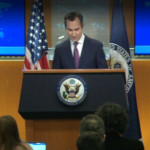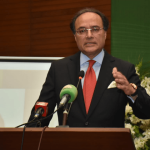The killing of Qasem Soleimani in Iran
Tensions had escalated when General Qasem Soleimani was killed by the US, and on January 8, 2020, Iran's Islamic Revolution Guard Corps downed a passenger airliner from Ukraine. For three days, the Iranian government worked to hide the actual cause of the tragedy, claiming that reports to the contrary were a product of US psychological warfare and that the jet had crashed due to a technical malfunction.
Meanwhile, an unidentified Tehrani user sent a video of missiles striking the airliner to an Iranian internet security activist living in the UK. The film was shared on social media and aired on Persian satellite television channels, including Iran foreign, a UK-based channel that is reportedly funded by Saudi Arabia, as well as foreign media. Following this, officials and Iranian activists engaged in heated social media debates. Eventually, the Iranian government gave in to the growing pressure and acknowledged their error.
Authoritarian states' shortcomings in communication
The example given above highlights the challenges a state such as Iran has in managing the narrative in a wartime situation if war is imminent. There is a common misconception that democracies are susceptible to information subversion, while authoritarian nations are better at communicating. But this viewpoint is not comprehensive. Authoritarian nations have more flaws than strengths when it comes to using communication techniques that transcend beyond distortion.
Russian media: Not at all a helpless spectator
The sort of regime in the state in question has a significant impact on the nature of the connection between the media and the government. The media is free to choose whether to support or refute claims made by the government in a democratic environment. On the other hand, state regulation of the media in authoritarian or hybrid contexts can vary from strict control over the information ecosystem to significant freedom of expression, provided that the media complies with editorial directives from the government on matters of great importance to the regime. The latter is exemplified by Russia.
In 2022, Roskomnadzor, the Russian Federal Authority for Communications, issued an order restricting media outlets to using only official government sources for their reports on the conflict in Ukraine. According to Article 15.3 of Federal Law №149-FZ, breaking this rule might result in an administrative punishment of up to 5 million roubles and the immediate blocking of such content by Roskomnadzor. Furthermore, all independent and foreign news outlets were all but obliterated by the extension of the "foreign agents" law.
Reevaluating presumptions regarding the media
The media is frequently portrayed in the popular view of authoritarian governments as being controlled by them and serving only as distributors of misinformation. But as the Russian media's coverage of the war in Ukraine, as previously said, shows, media outlets may still be creative and independent in their content creation while still having to respect government priorities when it comes to delicate subjects. In today's globally interconnected world, when people can travel the world and make contacts outside the purview of the regime, this autonomy becomes vital. In these situations, the media's ability to create extremely detailed, manufactured narratives about people, places, and events with the sake of manipulating emotions and providing emotional gratification becomes crucial in influencing public opinion and encouraging support for governmental










